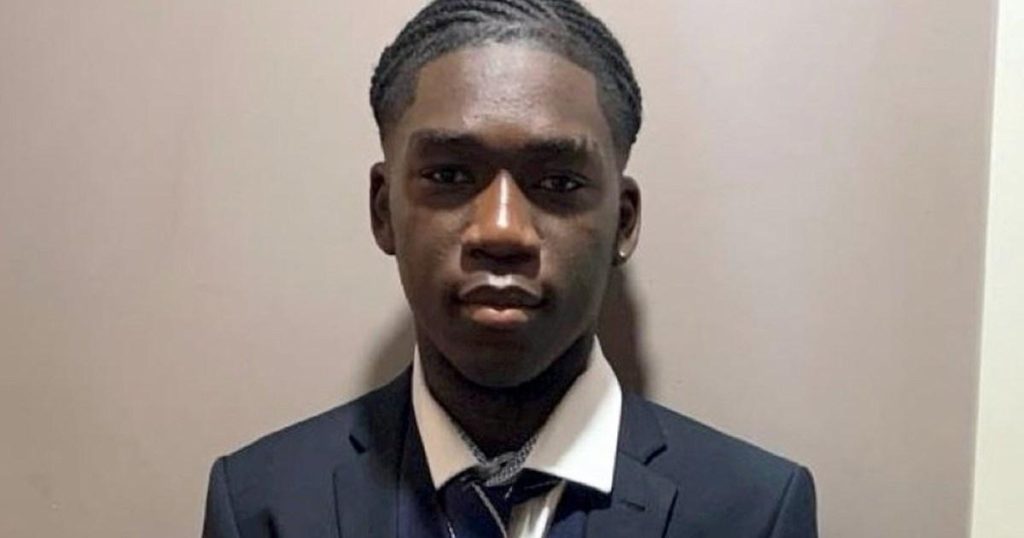A Teenager’s Holiday Romance Turns into a Nightmare in Dubai
Nineteen-year-old Marcus Fakana, from Tottenham, UK, finds himself incarcerated in Al Awir prison in Dubai, a facility notorious for its harsh conditions. His crime? Engaging in a consensual relationship with a 17-year-old British girl while on holiday in the UAE. What began as a seemingly innocent holiday romance has transformed into a legal nightmare, entangling Fakana in a complex web of cultural differences and stringent Emirati laws. He now faces a year-long sentence, separated from his family and struggling to cope within the confines of a prison known for its overcrowding, inadequate hygiene, and alleged human rights abuses.
Fakana’s ordeal began during a family trip to Dubai to celebrate his father’s birthday. He met a 17-year-old British girl, and they embarked on a short-lived but intense relationship. Unaware of the potential legal ramifications, the young couple enjoyed their time together, keeping their relationship discreet due to the girl’s family’s strictness. While Fakana’s parents were aware of the relationship, the girl’s parents were not. Upon returning to the UK, the girl’s mother discovered messages and pictures on her phone, revealing the relationship. Distressed by the discovery, she reported Fakana to the Emirati authorities.
Under UAE law, sexual activity outside of marriage with someone under the age of 18 is illegal, regardless of consent. This differs significantly from the legal landscape in the UK and many other Western countries. Consequently, Fakana found himself facing charges that could have resulted in a sentence of up to 20 years. While the girl, if still in Dubai, would also have faced legal consequences, Fakana, being readily available to authorities in Dubai, bore the brunt of the law. He voluntarily turned himself in to the authorities, a decision that highlights his willingness to cooperate and perhaps his naivety about the severity of the charges.
The stark contrast between the cultural norms and legal systems of the UK and the UAE underlines the complexities of this case. What would have likely been treated as an underage relationship in the UK has been categorized as a serious crime in Dubai, subject to severe penalties. This discrepancy highlights the importance of understanding and respecting the laws of foreign countries, especially those with drastically different cultural norms.
The conditions in Al Awir prison, where Fakana is serving his sentence, have further compounded his ordeal. Reports paint a grim picture of overcrowded cells, inadequate sanitation, and rampant disease. Allegations of torture and sexual assault by both inmates and guards have also surfaced, raising serious concerns about human rights violations within the facility. Fakana spent his 19th birthday and New Year’s Eve in isolation, deprived of contact with his family. These experiences have undoubtedly taken a toll on his emotional and psychological wellbeing.
Fakana’s family, along with the human rights organization Detained in Dubai, are actively campaigning for his release. They are appealing to the UAE authorities, including Dubai’s ruler Sheikh Mohammed Al Maktoum, for a pardon. They are also urging the UK government, particularly Foreign Secretary David Lammy and the British embassy in the UAE, to intervene on Fakana’s behalf. Their efforts aim to secure his early release and bring him back to the UK. They emphasize the consensual nature of the relationship and the harsh realities of his imprisonment, hoping to garner sympathy and support for their cause. The family maintains that the punishment is disproportionate to the offense, particularly given Fakana’s young age and the fact that the girl was close to the age of consent in most Western countries.
The case of Marcus Fakana serves as a cautionary tale, highlighting the potential legal pitfalls of engaging in relationships abroad, particularly in countries with vastly different cultural norms and legal systems. It underscores the need for travelers to be aware of the local laws and customs of their destination, ensuring their actions comply with the legal framework of the country they are visiting. The case also raises broader human rights concerns regarding the conditions within Al Awir prison and the application of strict laws that may not align with international standards of justice. The outcome of Fakana’s case will likely have implications for future cases involving foreign nationals in the UAE and could potentially influence the ongoing dialogue about human rights and legal reform within the country.




